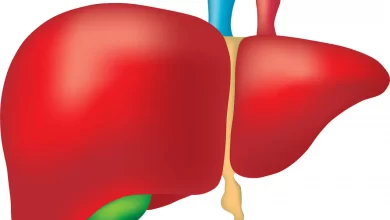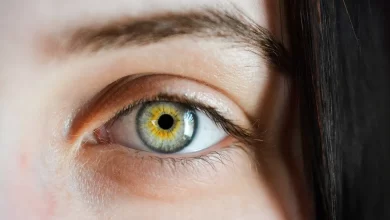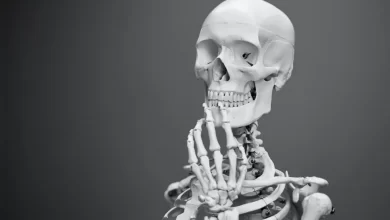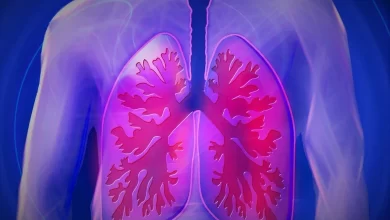The human heart is an integral organ that circulates blood all over the body, supplying nutrients and oxygen to tissues while removing carbon dioxide and other wastes from the blood. To be active and function properly, the tissues of the body require a constant supply of nutrition which is attained by constant blood supply, and the heart does this job by pumping the blood 24×7 throughout the life of a person.
- Our heart rate slows down when our face touches water; this is called as mammalian dive reflex.
- Our heart rate slows when our face touches water; it’s called the mammalian dive reflex.
- It is estimated that1 in 4 people have a hole in their heart.
- On average, one heartbeat pumps five tablespoons of blood every second.
- Our heart can create enough pressure that it could squirt blood at a distance of 30 feet.
- The average human heart will beat 3,000 million (3,000,000,000) times in its lifetime and pump 48 million gallons (47,000,000 liters) of blood.
- In reality, the heart is not on the left side of the chest. The heart is in the middle, between the right and left lung, and is slightly tilted to the left.
- Heartbeats are faster in women than men’s. The average heartbeat of men is about 70 beats per minute, while the heart of women averages about 78 BPM.
- Women also do have shorter hearts than men. The heart of a women averages 8 Oz (226 grams), whereas the heart of men is about 10 Oz(283 grams).
- There is a condition known as “broken heart syndrome,” which has similar effects to that of a heart attack. The syndrome can be caused by a breakup or physical separation from a loved one. In Japan, BHS is called “octopus trap cardiomyopathy.”
- Death from broken heart syndrome is do possible but extremely rare.
- The risk of a heart attack is 20% higher in men and 15% higher among women on Mondays than any other day of the week. The researchers have blamed the stress of returning to work for this increased risk of a heart attack.
- Most heart attacks occur between the morning hours of 8 and 9 AM.
- Our heart beats about roughly 72 times a minute, 35 million times in a year, and 100,000 times a day.
- The human heart will beat approximately 2.5 billion times during a typical human life span of a person of age 70.
- Based on the data of 2017, Approximately 2,535 people die every day in the United States because of a cardiovascular disease.
- In ancient times, it was thought that the heart controls a person’s emotions.
- The first open-heart surgery in human history was performed by Dr. Daniel Hall Williams in the year 1893.
- When we sneeze, our heart and other bodily functions stop at full.
- The left side of our heart is much thicker and stronger than the right side.
- People that suffer from gum disease are more vulnerable to have a stroke or heart attack.
- Our heart muscles will stop working only when we die.
- Three years after a smoker quits smoking, the chance of having a heart attack is the same as someone who has never smoked before.
- Your heartbeat changes and mimics the music you listen to.
- Every day, our heart creates enough energy that is needed to drive a truck for 32 Km (20 miles). In a lifetime, that is equivalent to driving to the moon and coming back too.
- The reason our right lung is larger than the left one is because of the placement of our heart.
- By the time you turn 70, your heart will have beat some two-and-a-half billion times (figuring on an average of 70 beats per minute.)
- Scientists have discovered that the longer the ring finger is in boys, the less chance they have of having a heart attack.
- In one hour, your heart works hard enough to produce the equivalent energy to raise almost 1 ton of weight 1 yard off the ground.
- The human heart continues to beat even though it is taken out of the body or cut into pieces.
- In the year 1967, the first successful heart transplant was performed in Cape Town, South Africa.
- The size of a kid’s heart is the same as the size of his/her fist, and the size of the heart of an adult is almost the same size as twice of his/her fist.
- The use of olive oil can decrease the risk of heart complications and even lowering cholesterol.
- A human heart pumps about 1 million barrels of blood in its lifetime, which is enough to fill more than three tankers.
- A heartbeat is just the sound produced by the closure of the heart valves when the blood is pushed through its chambers.
- A healthy heart pumps 2,000 gallons (7570 liters) of blood through 60,000 miles of blood vessels each day.
- The heart has its own electrical impulse that means it continues to beat even when separated from the body as long as it has an adequate supply of oxygen.
- The heartbeat of a fetal is twice as fast as an adult’s, which is about 150 BPM. When the fetus is 12 weeks old, its heart pumps an amazing 60 pints of blood each day.
- The heart pumps blood to almost all of the 75 trillion cells present in the body. Only the cornea of the eyes does not receive blood supply.
- The power output of the heart ranges from 1-5 watts. While the quadriceps can produce 100 watts for a few minutes, an output of one watt for 80 years is equal to 2.5 gigajoules.
- The heartbeat begins in fetal starts beating at the 4th week after conception and does not stop until death.
- The heart pumps oxygenated blood through the aorta (the largest artery) at about 1 mile (1.6 km) per hour. By the time blood reaches the capillaries, it is moving at around 43 inches (109 cm) per hour.
- Lack of sleep for a long duration can cause irregular jumping heartbeats, which is called premature ventricular contractions (PVCs).
- Some heavy snorers may have a condition called obtrusive sleep apnea (OSA), which can negatively affect the heart.
- The cells of the heart does not divide, so it extremely rare to have a heart cancer.
- Physician Erasistratus was a Greek anatomist and royal physician under Seleucus I Nicator of Syria (304-250 B.C.). He was the first to discover that the heart functioned as a natural pump.
- Grab a tennis ball and squeeze it tightly: that would be the same hardness the beating of the heart works to pump blood.
- In 1903, physiologist Willem Einthoven invented the electrocardiograph, which is used to measure electric current in the heart.
- Unlike other muscles of our body, the heart muscles contract without stimulus from our nervous system.
- The signals for the heart to beat comes from the sinoatrial node, which is near the top of the right atrium.






